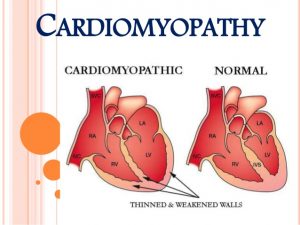
Most cardiac arrests are due to coronary arteries being obstructed by blood clots that form when plaques of cholesterol rupture. The absence of blood flow through the blocked arteries leads to heart muscle dying– thus the name “cardiovascular disease.” However, there is another type of cardiac arrest called takotsubo cardiomyopathy.
Over the past couple of years, physicians have pertained to acknowledge and much better comprehend this form of cardiac arrest. This unusual kind of cardiovascular disease does not involve rupturing plaques or blocked capillary. It is called takotsubo cardiomyopathy, or tension cardiomyopathy. Japanese physicians, who were the first to describe this condition, called it “takotsubo” due to the fact that during this disorder, the heart takes on a distinctive shape that resembles a Japanese pot utilized to trap an octopus. Takotsubo cardiomyopathy was typically thought to be caused by abrupt emotional stress, such as the death of a kid, and to be far less damaging than a common cardiac arrest. For that reason, some had actually likewise labeled this condition “broken-heart syndrome.”
A research study in the September 3, 2015 problem of The New England Journal of Medicine reports on the work of a worldwide cooperation of physicians from the United States and Europe that studied 1,750 clients with takotsubo cardiomyopathy. Remarkably, 90% of these cases took place in women, and the women in this study were an average of 67 years old. The most common triggers of tension cardiomyopathy were physical (such as lung problems or infections), and the next most common cause was an emotional “shock.” However, in a substantial percentage of clients, there was no trigger that could be recognized.
Compared to people who had actually experienced a “typical” heart attack, patients with takotsubo cardiomyopathy were nearly twice as likely to have a neurological or psychiatric condition. And in contrast to the commonly-held belief amongst medical professionals that takotsubo cardiomyopathy is less severe than other kinds of heart attack, the rates of death in the hospital between takotsubo cardiomyopathy and more “conventional” cardiovascular disease were comparable.
As awareness of takotsubo cardiomyopathy increases among physicians and patients, I believe we will be recognizing even more cases of takotsubo cardiomyopathy in the future. The condition certainly does not seem as rare as was thought nor as harmless as had actually been thought.
Future research will be required to determine the very best to take care of clients with takotsubo cardiomyopathy and lower their risk for future issues. Right now, we often use the same medications to deal with weakened heart muscle in takotsubo cardiomyopathy as we finish with other types of cardiac arrest, however there really are few excellent studies yet relating to the ideal medication options for people who have actually experienced takotsubo cardiomyopathy. The relate to neurological or psychiatric conditions is interesting and recommends that an essential heart– mind connection relates to some manifestations of takotsubo cardiomyopathy, and perhaps to other cardiac conditions too.

